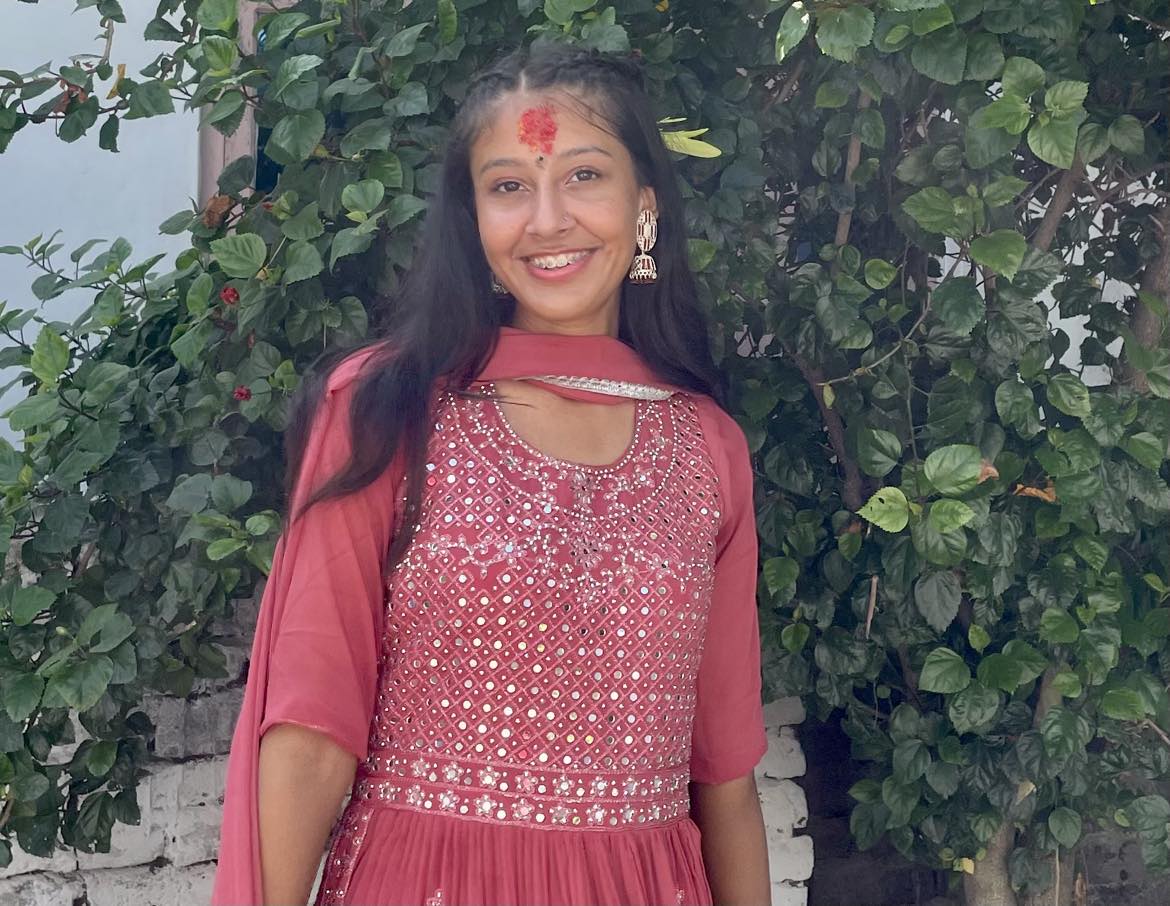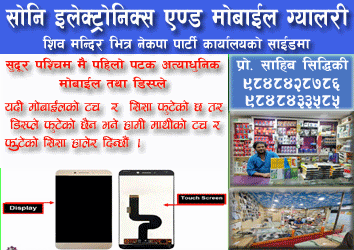Why is feminism needed?
“If you are a humanist, you are a feminist.”

Apekshya Upadhyay
What is feminism? Some people believe that it is a concept against men. A concept which argues for the eradication of men’s rights and freedom. They think feminism is about providing more rights and opportunities to women than men. But it’s not. It’s about equality. Feminism is all about providing equal rights and opportunities to both men and women. It doesn’t deny the biological difference between the sexes but demands equality in opportunities. It demands equal treatment, respect and social rights for both the genders.
I have met some people, who think that the idea of feminism is absurd because according to them women have equal rights and freedom. Well, they are not entirely wrong, legally, we do have equal rights as per the constitution. Nepal’s constitution guarantees equal rights to men and women and prohibits gender-based discrimination. However, the real question is whether women truly get equal opportunities in everyday life. Do people genuinely treat both men and women the same? I doubt it, and many might disagree, especially men. So, let me ask you: have you ever pretended to be in a phone call while walking alone in a dark street just to feel safe? I think not.
Data shows that 7 women or girls on an average are raped daily and more than 2,000 cases of rape are reported to the police every year in Nepal. More than half of the cases are not even reported because of shame. An estimated 91% of victims of rape and sexual assault are female and 9% are male. Nearly 99% of perpetrators are men. According to a report from World Health Organization, one in three women worldwide experience physical or sexual abuse. Is that what respecting and treating a woman fairly means? A news article published in December 2017, by NPR highlighted the interview taken by Madhumita Pandey of 122 convicted rapists in Delhi’s Tihar Jail. Her interviews reinforced the views that rapists had a poor opinion of women in general, but their utter lack of remorse came as a surprise to her. One exception was a middle-aged man, convicted for the murder of a 5-year-old. He said he felt remorse. But not the kind of remorse one would expect. "He expressed his remorse by saying that now that the girl carries the stigma of rape [and thus is no longer a virgin] and would not find a suitable husband; he would repent for his actions by marrying her when he was released," said Pandey. "He didn't realize that this is not what any rape victim would want. His mindset highlighted a very regressive thought that a woman has to be chaste till marriage or else she is damaged goods." According to the research of scholars like Susan Brownmiller, Richard R. Johnson, Danielle Cusmano and Rebecca Whisnant, the root cause of rape is not just sexual excitement. Based on their findings there are three types of rapists; Those who rape to exert their power, those who want to vent out anger and those who are sadistic. But the similarity between these three types is that they all depict women as inferior to them.
From the early times, women have been considered weak and inferior to men. The inferiority led to the idea that women are supposed to stay at home, bear children, handle the household and take care of the family. People don’t say, “Women belong in the kitchen," anymore but that doesn’t necessarily mean the idea has disappeared. Over time, women started working outside the house, which eased the financial burden of men. Men were traditionally given the responsibility of earning and providing for their family but now, both women and men contribute to the family income making things more manageable for everyone. However, it raises the question: has this made life easier for everyone, or is it primarily benefiting men? In the past, women’s responsibility included taking care of the children and handling household chores. Now they not only manage the household but also work outside the home, which often leads to physical as well as mental stress. It might not be the same for every woman, but it's a common reality for many. There is an unequal distribution of household tasks. The stress could be easily casted off if men are involved in the household chores but they don’t because of the stereotypical thinking that the household is supposed to be handled by a woman. While some women are struggling to manage their home life and work life at once, some are struggling to even find a job. Despite their skills and knowledge, women are provided very few opportunities compared to men.
Priyanka Chopra once responded to a sexist question in an interview, stating, “When we talk about equality and opportunity, we talk about cerebral opportunities. We are not saying we want to be 200 pounds like a man and beat up somebody else. We are not saying that. What we are saying is: You get the ability to get the job, to be the CEO and nobody questions when you are driven at 50 and have three children, “How are you managing it all?”. Don’t question me. That’s what I am saying. I can be a CEO and a mother”. Chopra's statement resonates with the reality faced by many women in the workforce. Despite progress, gender discrimination persists, often manifesting in unequal opportunities and pay disparities. For instance, studies have shown that women are underrepresented in leadership positions, with fewer female CEOs and executives compared to their male counterparts. Not to mention, women are not safe even in their workforces. According to TUC (Trades Union Congress), two in three women have experienced sexual harassment, bullying and verbal abuse at work. However, most victims do not report it for fear of not being believed or of damaging their relationships at work or their career prospects, the TUC said. Women are not safe anywhere, are they?
They are not safe in their own society, workplace or even their own house. According to NCADV, one in four women experience domestic violence at least once in their lifetime. The primary cause behind the discrimination and violence against women is patriarchy, which simply refers to a social system in which the power is held by men. We have been living in a patriarchal society for centuries, where men typically have authority over many aspects of life, which includes women. Nature created diversity and society created discrimination. Nature created men and women and society created the ideology where women are inferior to men. From the beginning, women are told what to do, first their families and when they get married, the decisions are often made by the husband. Women are not only victims of physical abuse but also emotional and mental abuse. Are women not born free just like men? Why does their freedom require approval from fathers or husbands? Even in this 21st century, women are restricted from making their own decisions. If you think that’s not true, then ask your mother or sister if they have total freedom of making their own decisions. Patriarchy not only dehumanizes women but also men. Stereotypes like "Men don’t cry" or "Men should be the sole provider for the family” come from patriarchal systems. Men often feel an intense pressure to get a good job to provide for their families. If a wife earns more than her husband, it can lead to teasing or making fun of the husband. Men might find it tough because, no matter how hard things get, they're not supposed to show their emotions, and if they do, it's seen as being too sensitive and “emotional like a girl”.
The time is changing and women are slowly getting their rights and freedom. The only way of eradicating gender based discrimination is providing a proper education about why patriarchy is destructive. We have been taught that women are weak for many years and it will certainly take time to unlearn those things. But if we come together for humanity, it won’t be so hard to create a safe and respectful world for women. As a feminist, we are not promoting toxic feminism, we are actually against it. We are demanding for a society where women and men are treated equally. Culture does not make people, people make culture. If we created a patriarchal society, I don’t think it would be hard to create a humanistic society. Rahul Bose once said, “If you are a humanist, you are a feminist”. So, are you a feminist?








तपाईको प्रतिक्रिया